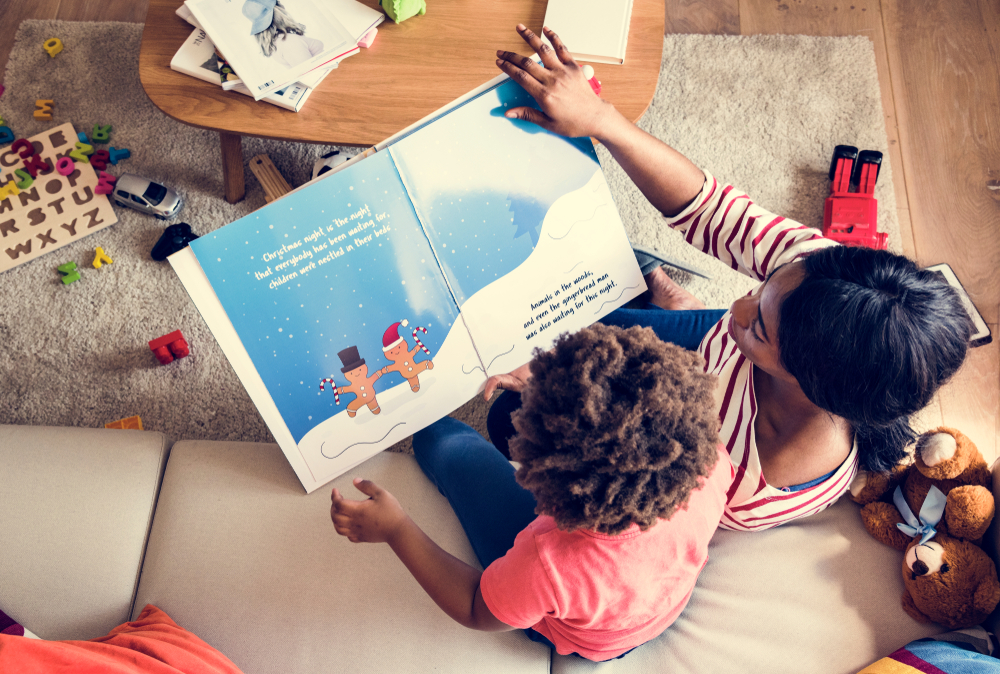Letter recognition Worksheets for Ages 6-8
87 filtered results
-
From - To
Boost your child's reading foundation with our Letter Recognition Worksheets for Ages 6-8. These engaging worksheets are designed to help children identify, recognize, and write letters with confidence. Each printable activity combines fun graphics with practice exercises, integrating familiar words and objects to make learning exciting. These worksheets cater to different learning styles, whether your child needs basic letter tracing or advanced letter sound matching. Perfect for classroom or at-home practice, these resources provide a solid groundwork for literacy. Explore our collection and watch as your young learner's letter recognition skills blossom and pave the way to successful reading.


Letter E Coloring Sheet
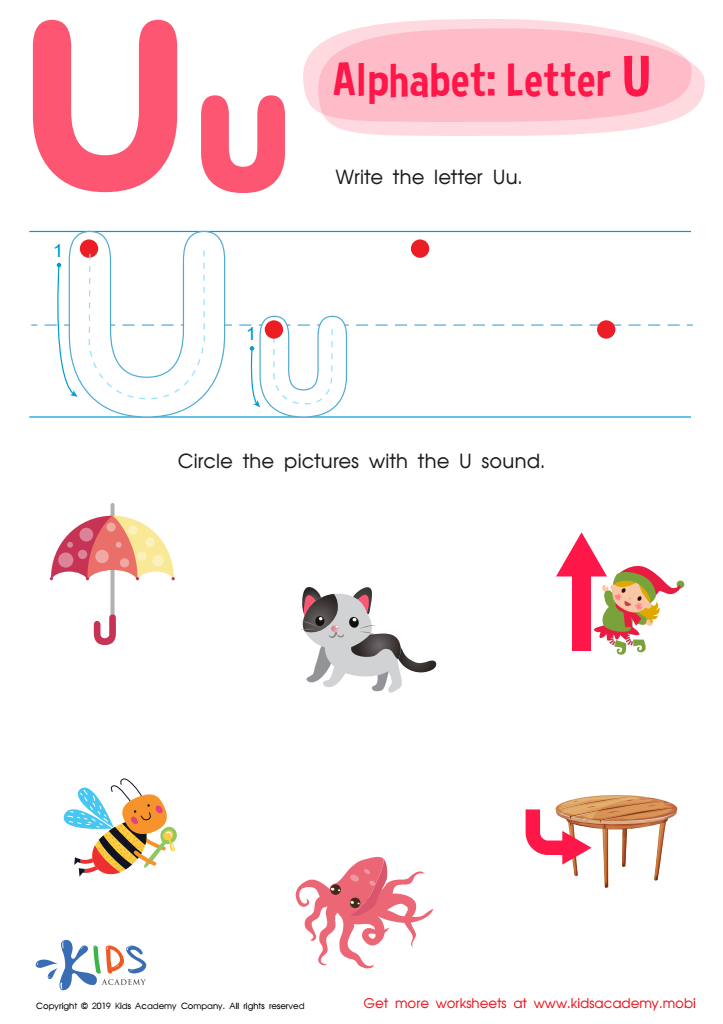

Letter U Tracing Worksheet
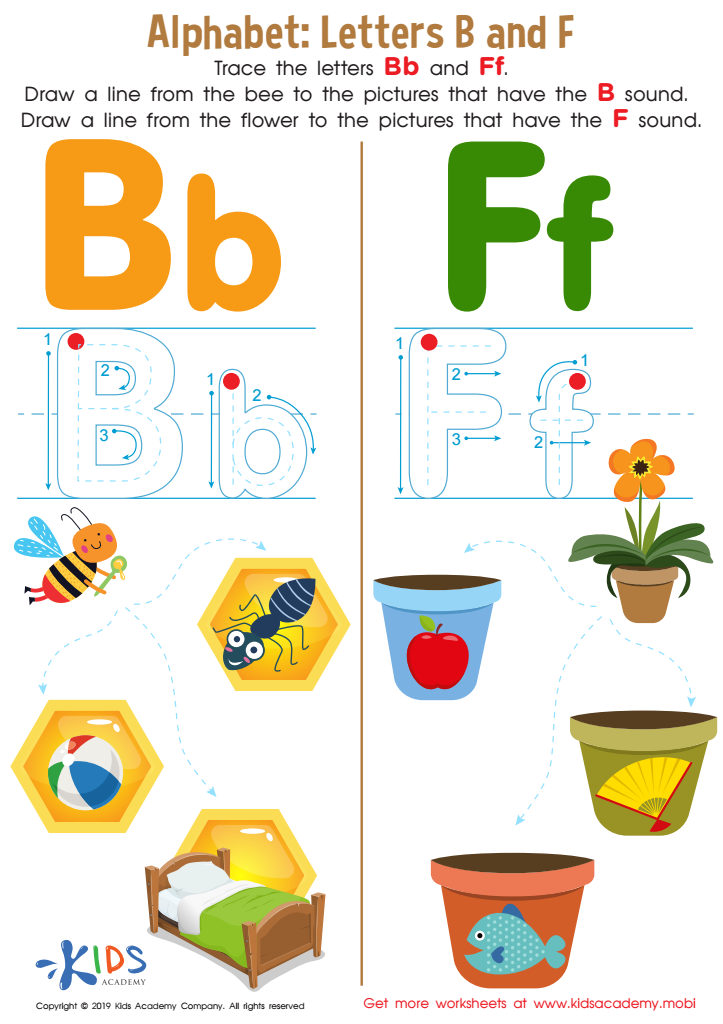

Letters B and F Tracing Worksheet


Letter R Tracing Page
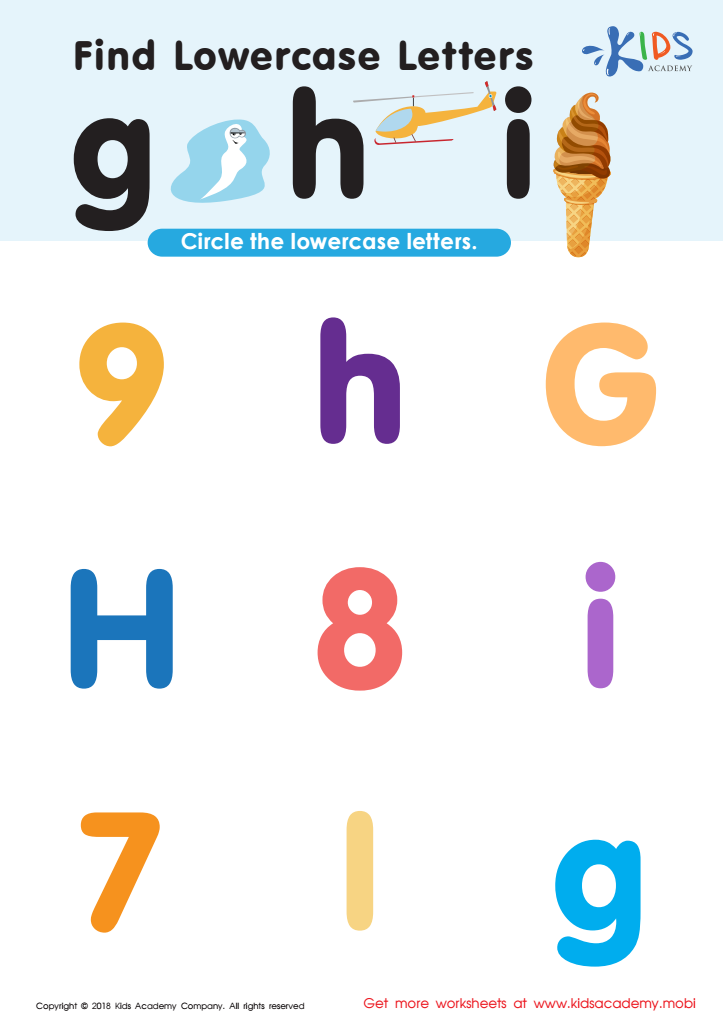

Find Lowercase Letters g h i Worksheet


Letter X Tracing Page


Letter P Tracing Page
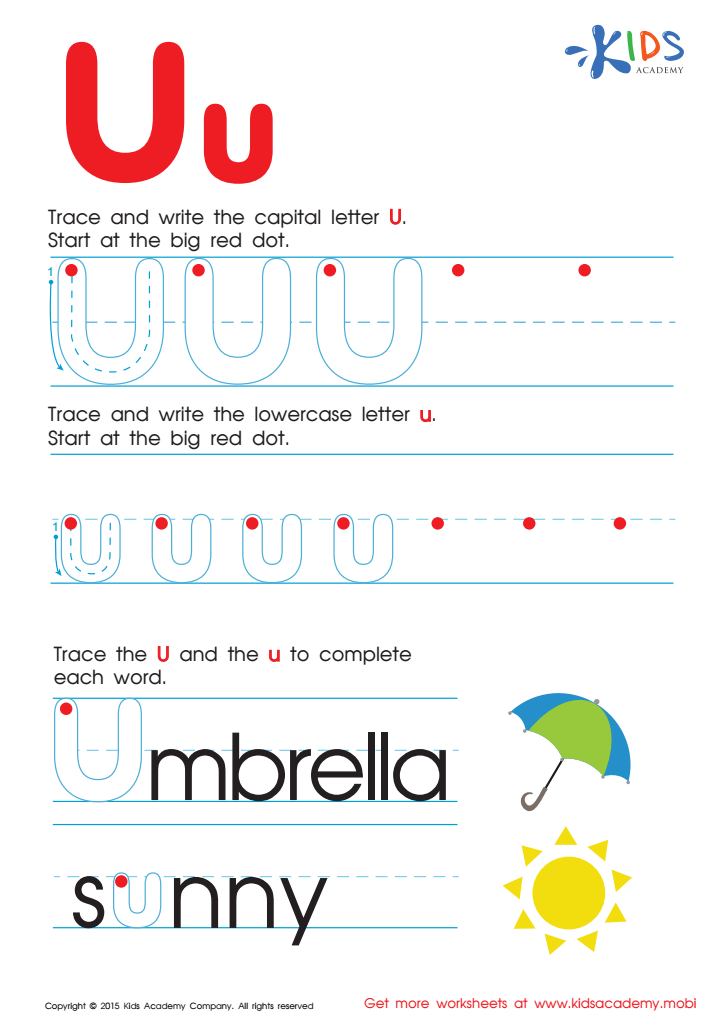

Letter U Tracing Page
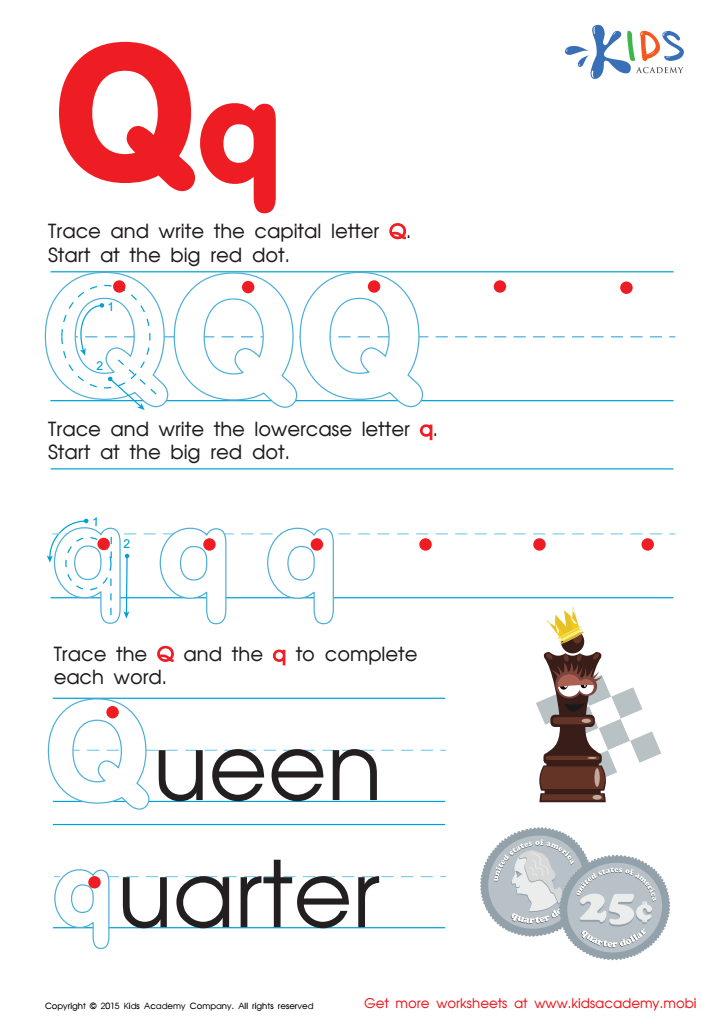

Letter Q Tracing Page
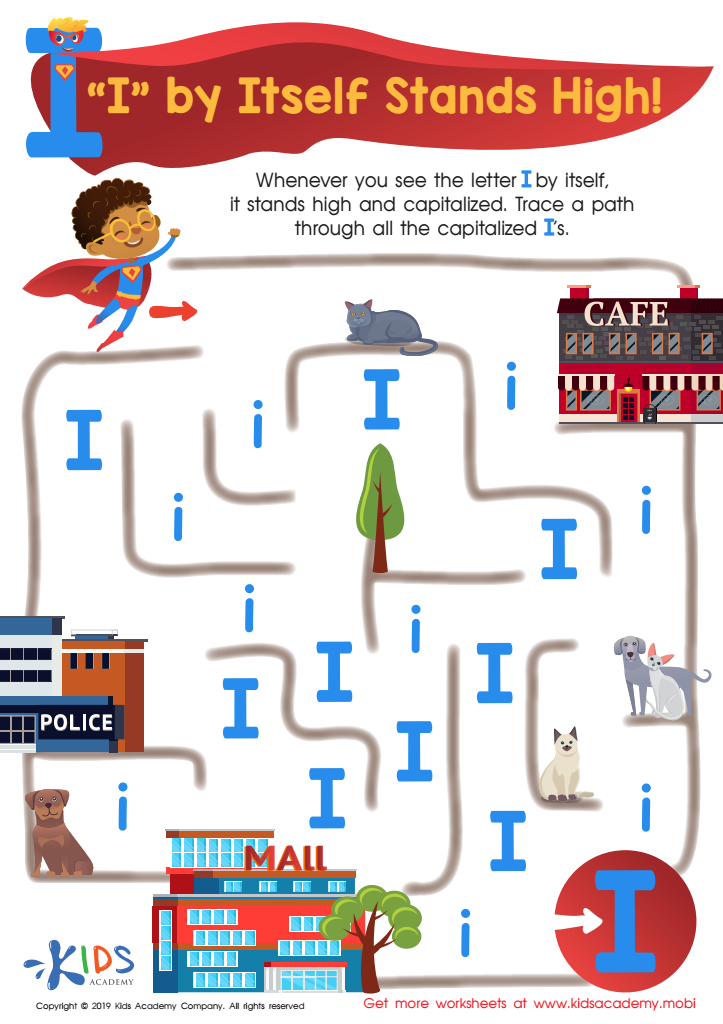

I Stands High Worksheet
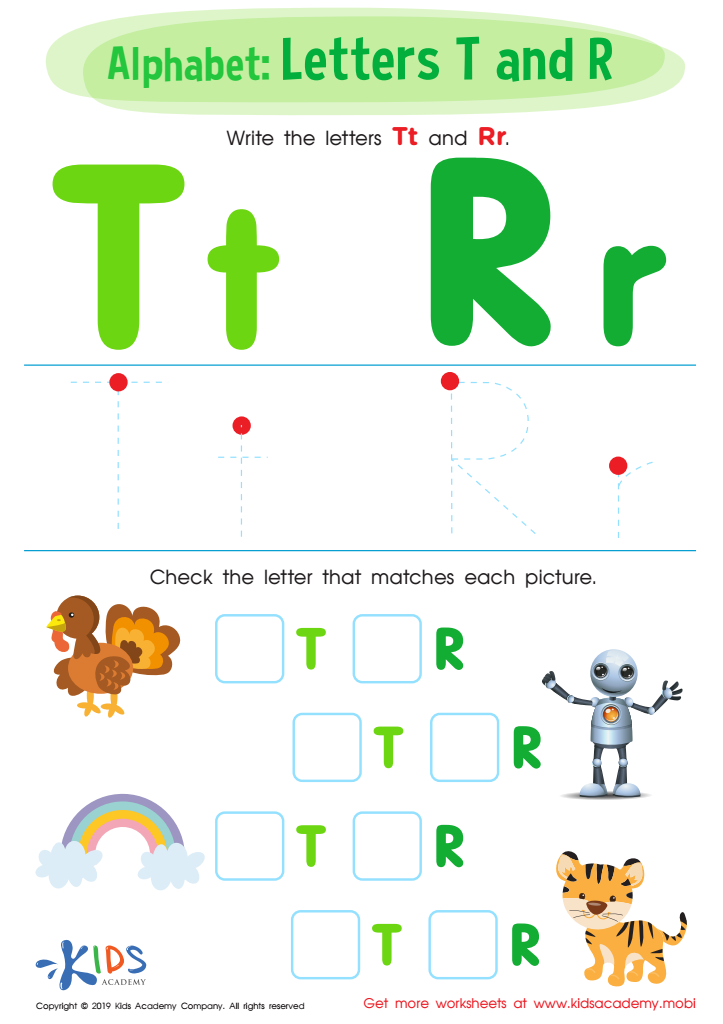

Letters T and R Worksheet
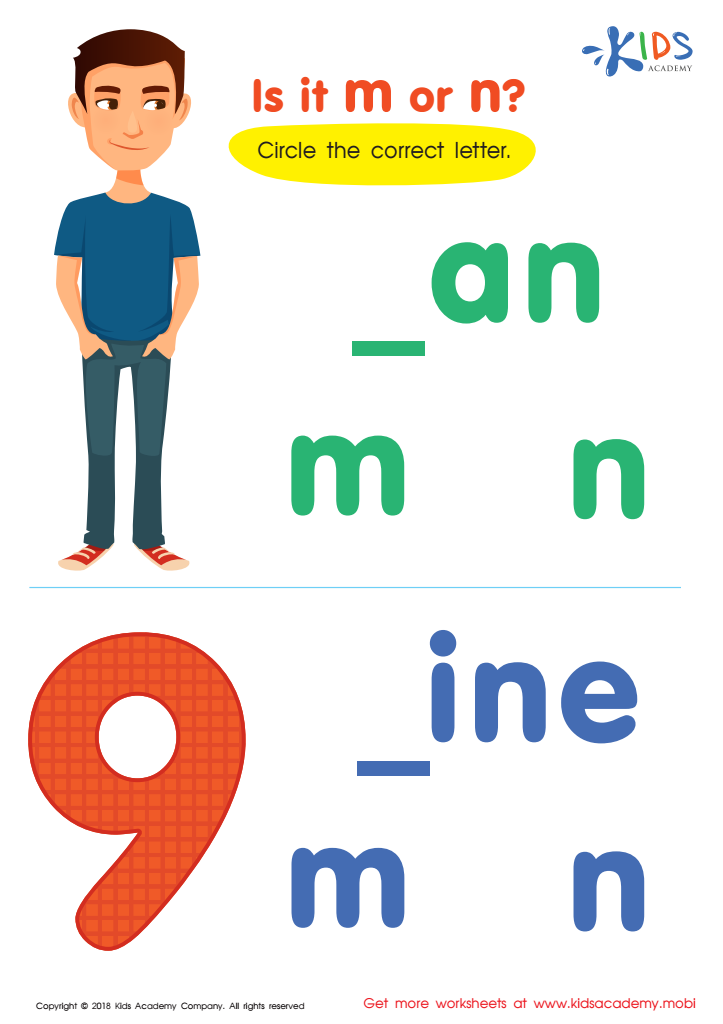

Is It m or n? Worksheet
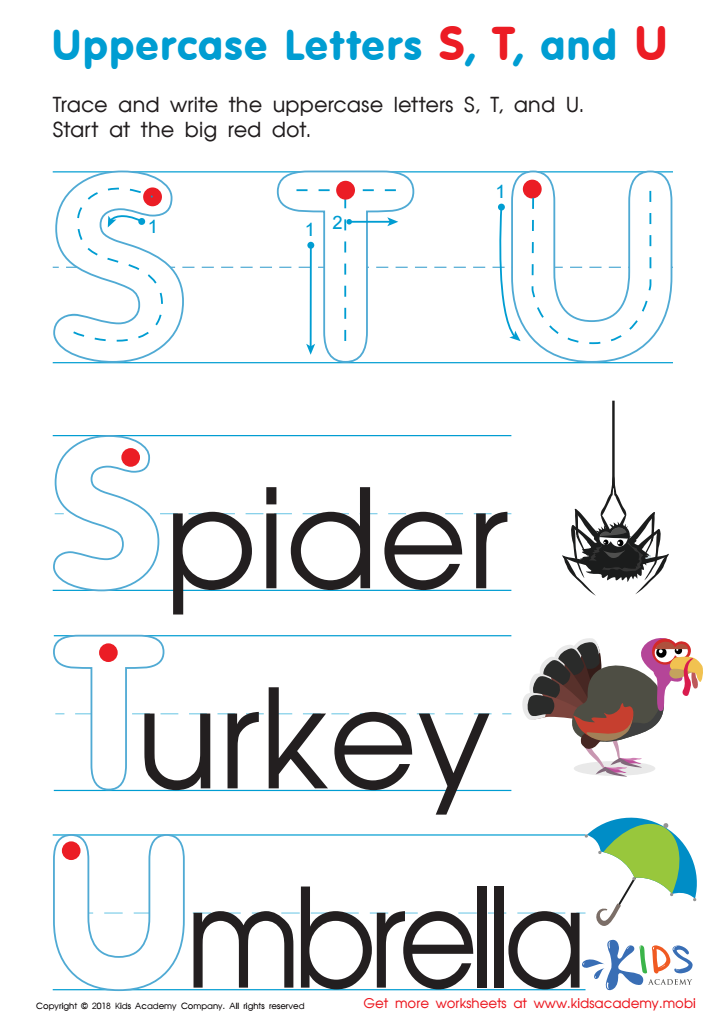

Uppercase Letters S, T, and U Worksheet
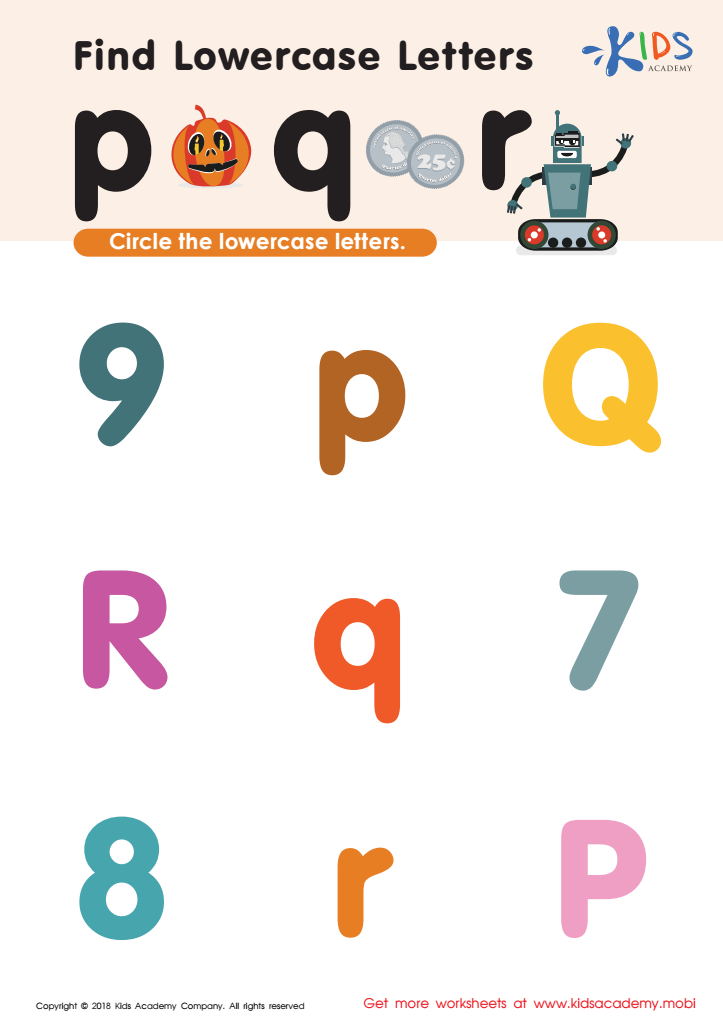

Find lowercase Letters p q r Worksheet
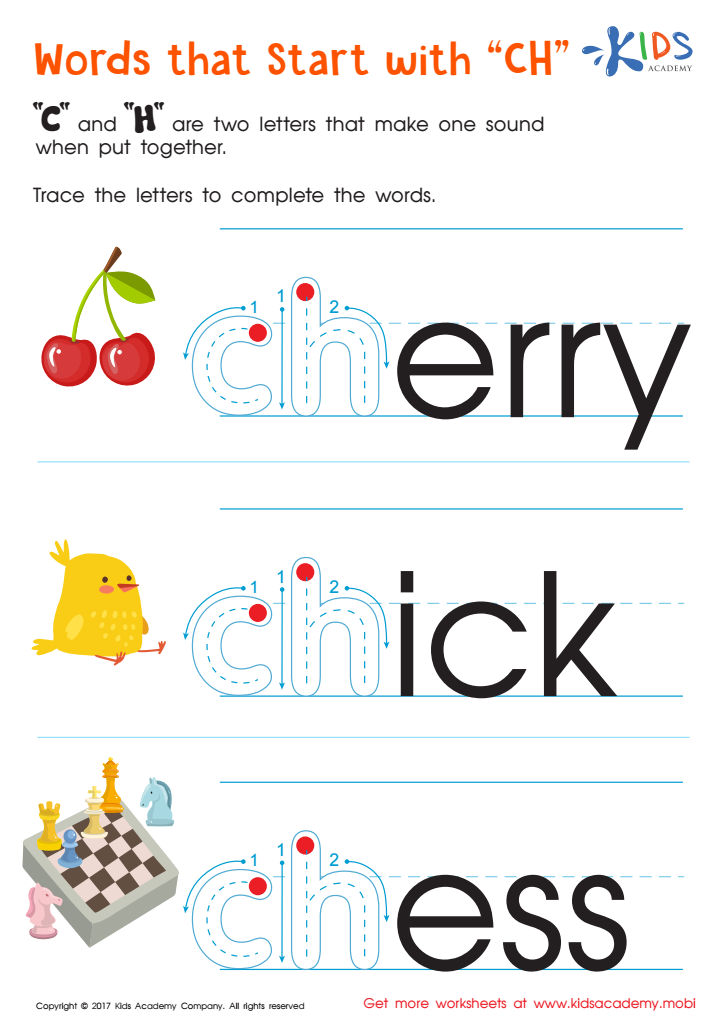

Words That Start with "ch" Spelling Worksheet
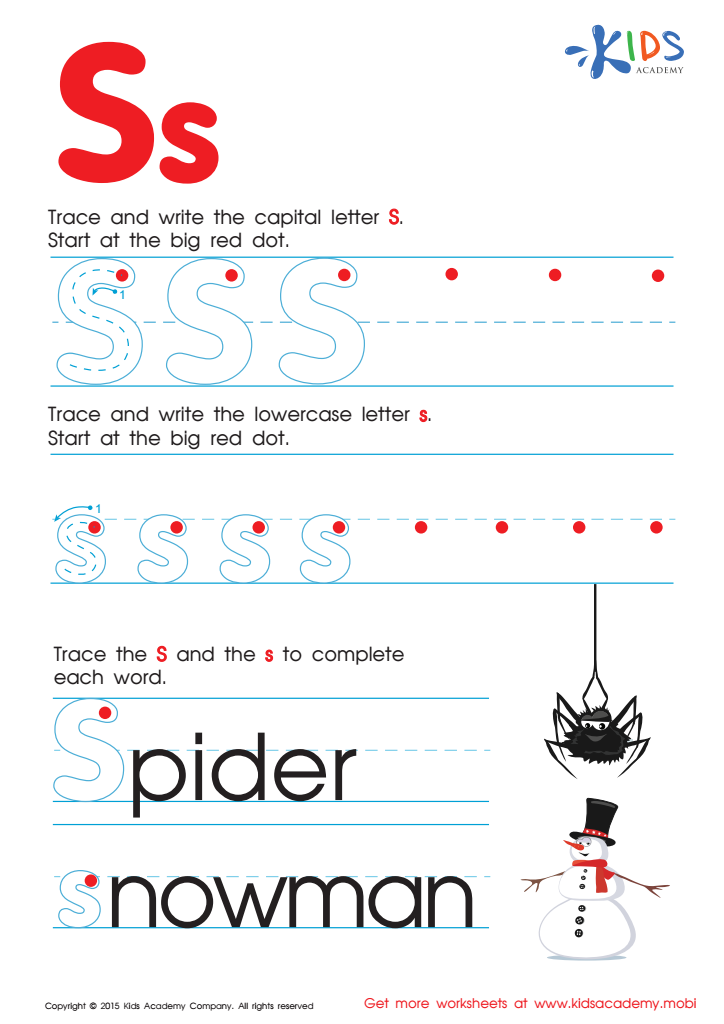

Letter S Tracing Page
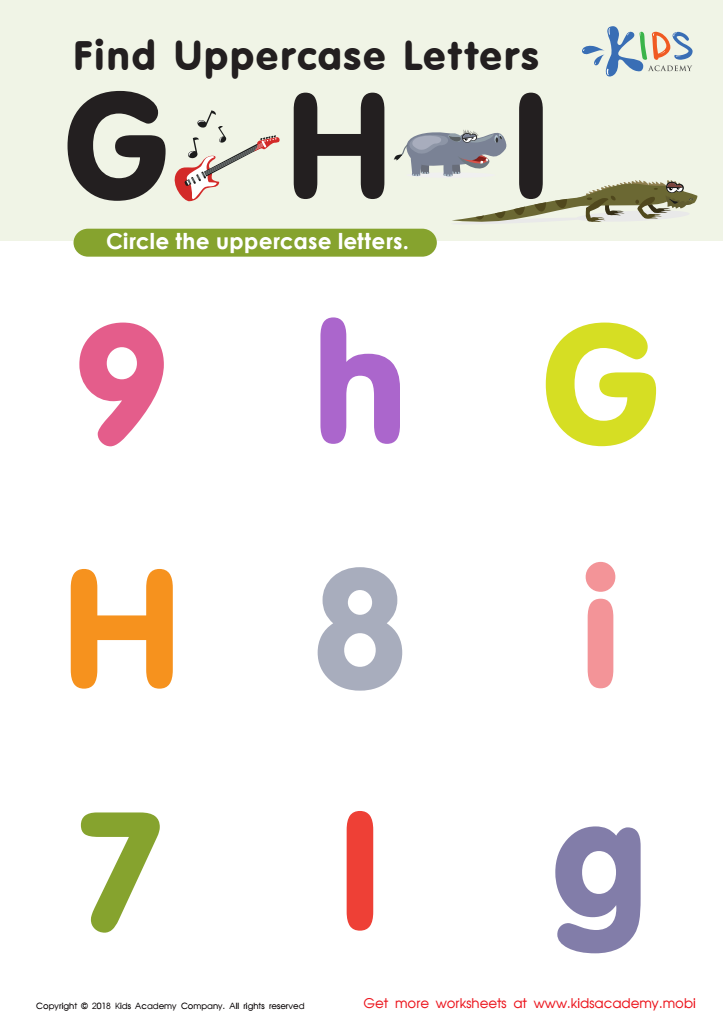

Find Uppercase Letters G, H, and I Worksheet
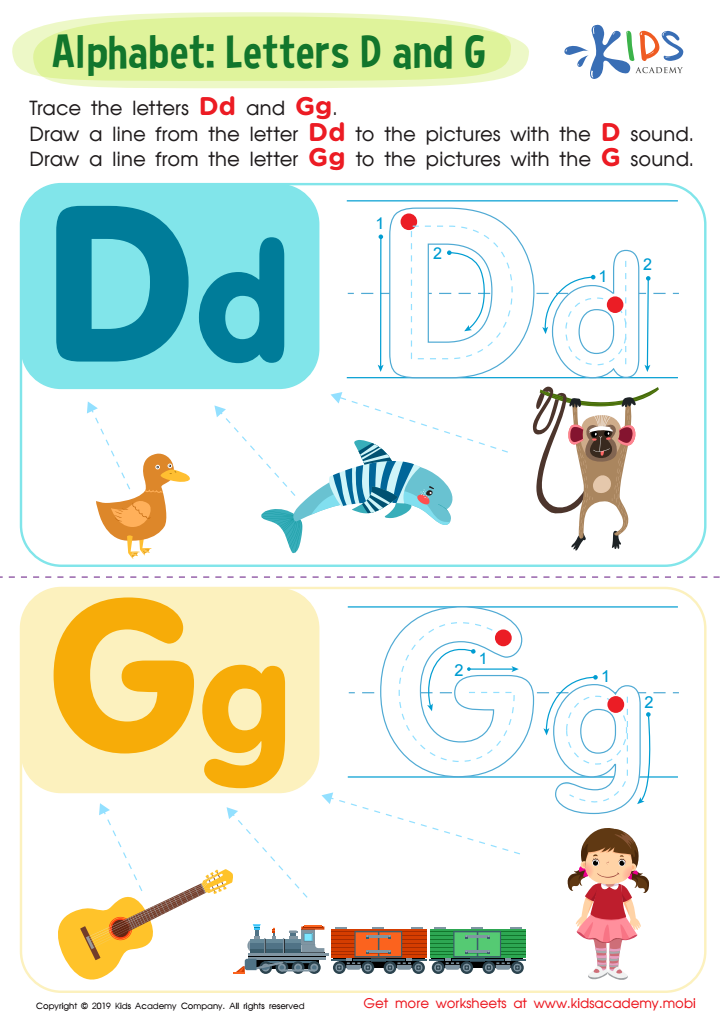

Letter D and G Tracing Worksheet
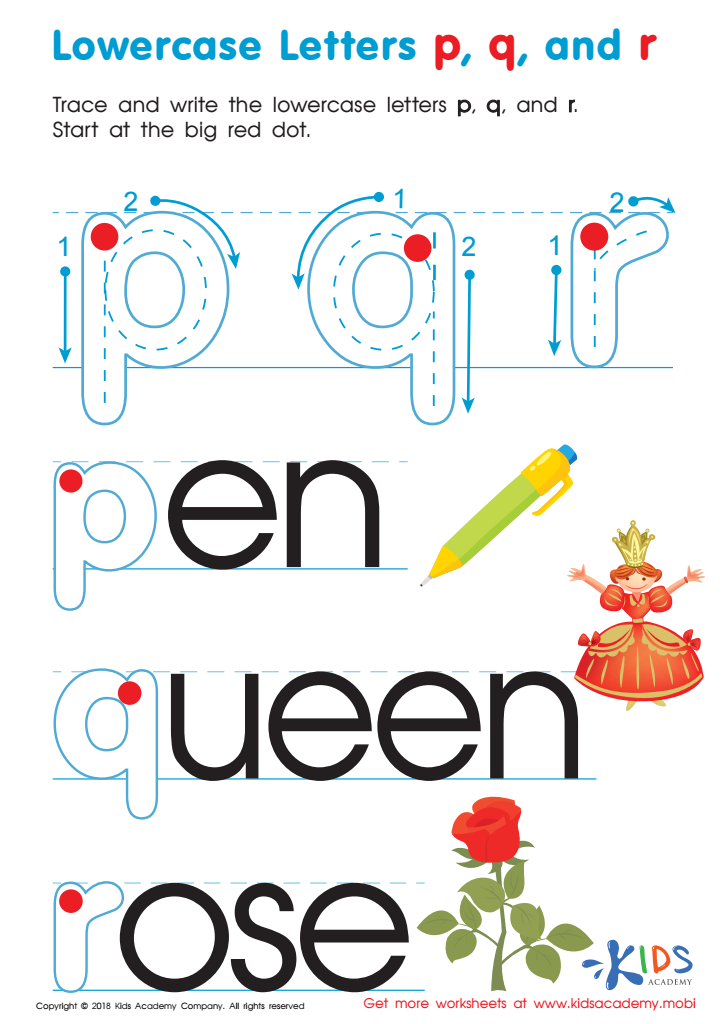

Lowercase Letters p q r Worksheet
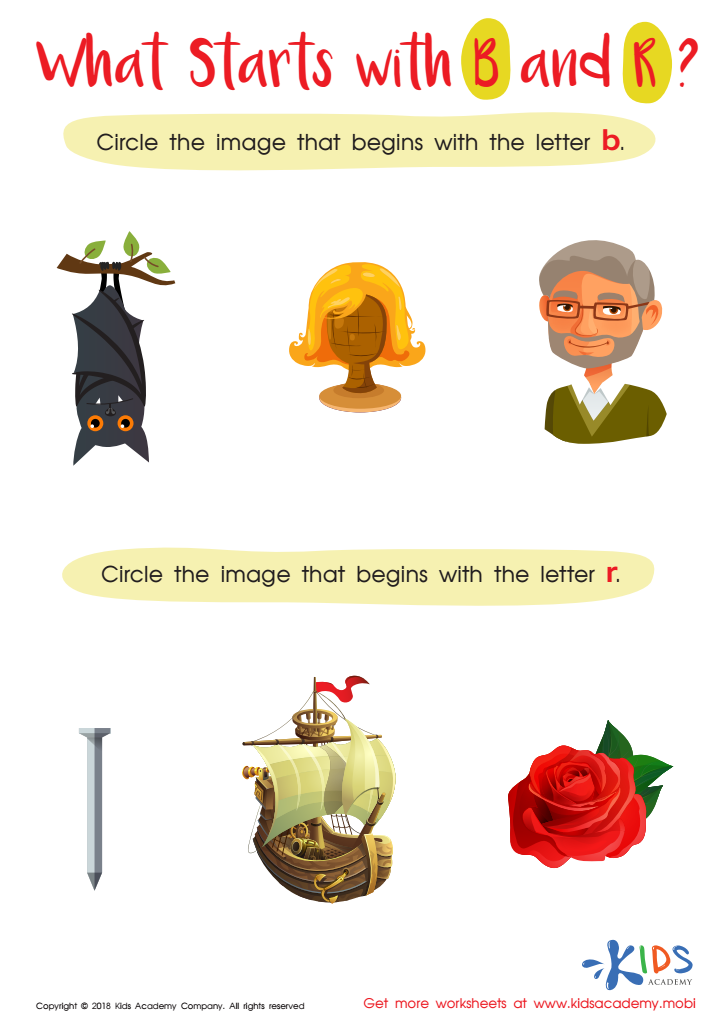

What Starts with B and R? Worksheet
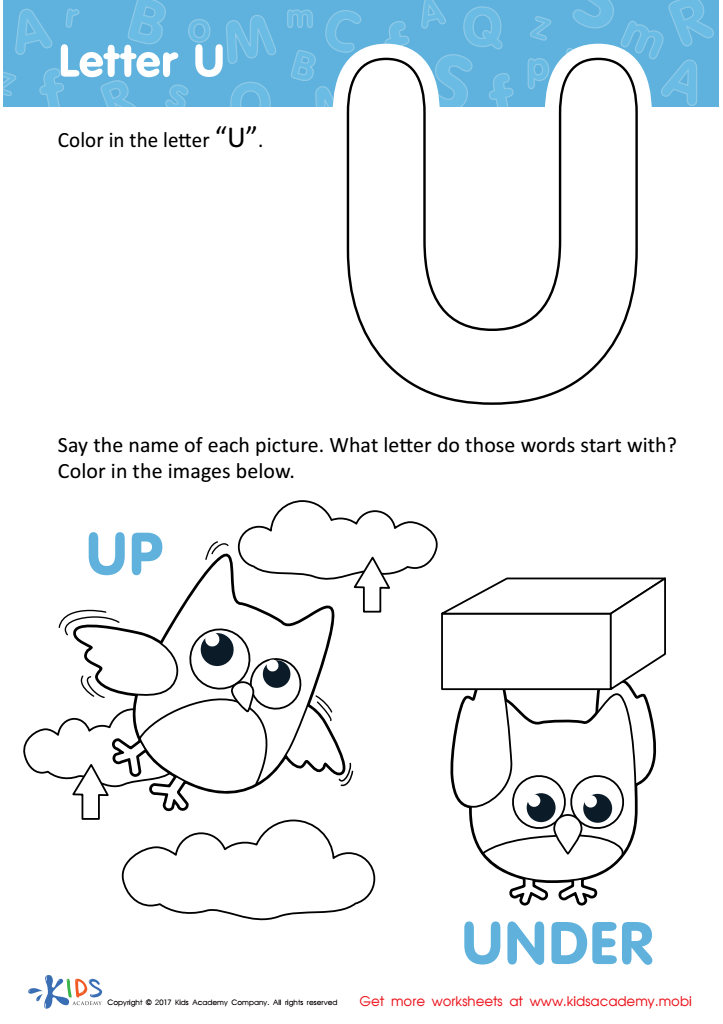

Letter U Coloring Sheet
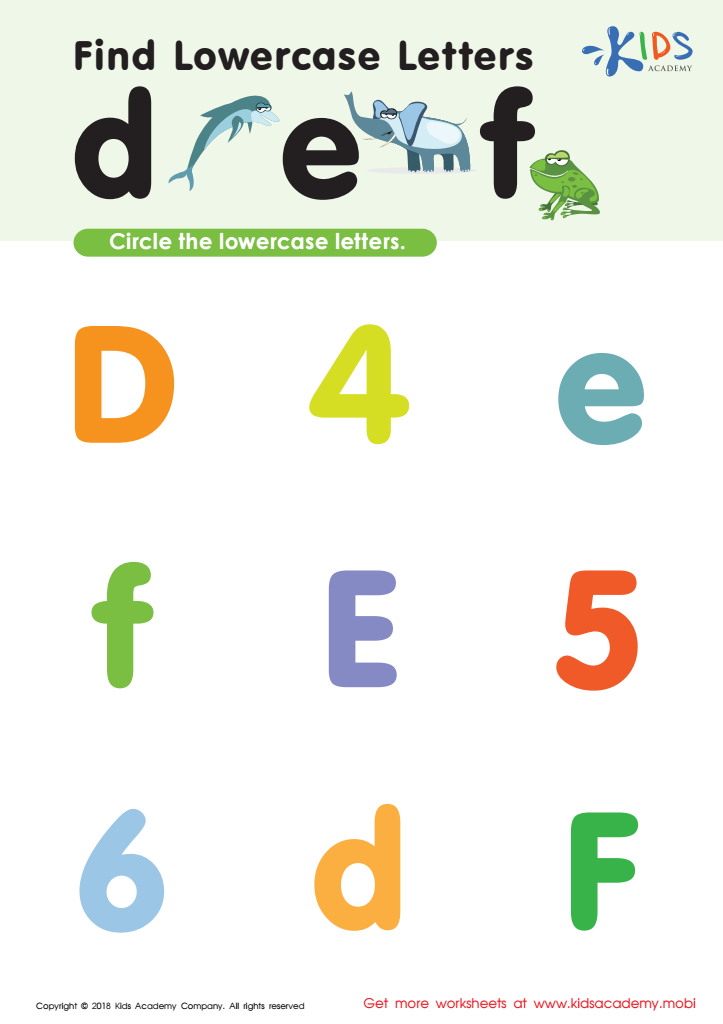

Find Lowercase Letters d e f Worksheet
Letter recognition is a critical foundational skill for children ages 6-8 as it is formative in their overall literacy development. Being able to recognize letters accurately and effortlessly leads to successful reading and writing. At this age, children transition from "learning to read" to "reading to learn." Mastery of letter recognition enhances early word decoding skills—the ability to sound out words when reading. This bolsters vocabulary, fluency, and comprehension, which are essential for academic achievement across all subjects, not just language arts.
Furthermore, strong letter recognition supports spelling and writing, enabling children to express their thoughts more effectively. This boosts their confidence and encourages a positive attitude toward literacy.
Delayed or impaired letter recognition can impede literacy development, potentially causing struggles in more advanced skills such as reading comprehension and written communication. These difficulties might lead to frustration, lowered self-esteem, and disengagement from learning.
By nurturing solid letter recognition skills through fun, interactive, and consistent practices, parents and teachers lay the groundwork for a lifetime of literate success, critical thinking, and informed participation in society. Therefore, focusing on letter recognition helps ensure children reach their full potential, setting the stage for academic and personal growth.

 Assign to My Students
Assign to My Students











